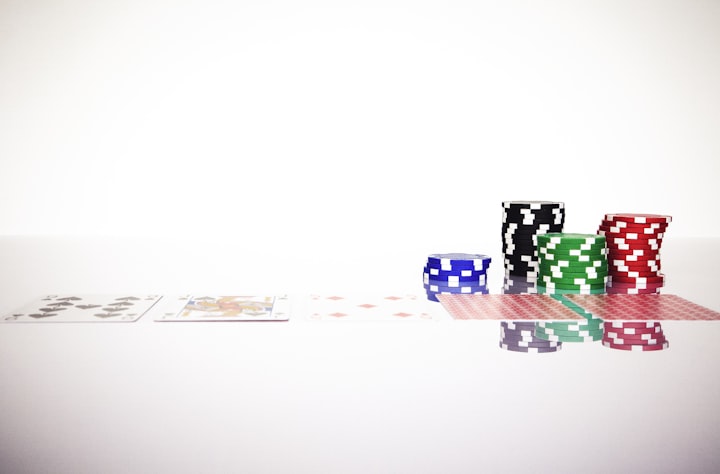The right perspective in an uncertain environment
How neutral do you act?

Trading means acting in an uncertain environment. Once you enter into a trade, the further course of the price is completely open and unpredictable, even if the decision is based on an analytical method with a statistically proven advantage. In this uncertain environment and with the always visible pending result in front of your eyes (book profit or loss) emotions like hope, fear or greed are completely normal. But when these emotions determine the actions, it becomes difficult, if not impossible, to trade profitably in the long run.
Marc Douglas describes in his book "The Disciplined Trader" an evaluation method to look at the market as objectively as possible. He calls it "neutral probability assessment". What sounds very simple at first, can become very difficult when applied. In order to perform this "neutral probability assessment", you must learn to face every possible market movement and the resulting impact on your trading results without prejudice. To do this, you need to observe the current movements of the market and view them as indicators of the price movements that are likely to occur next. And always - even when you are holding a position, you must observe and judge the market as if you were not holding a position. You must focus your thoughts on the market structure and not on the possible outcome of your trade.
The reason why this is so difficult is that you have to get over the human distortions of perception (or what are called evaluative tendencies). In order to process the multitude of information, our consciousness more or less automatically generalizes, distorts or even erases it. As a result, the entire information is perceived only selectively and we trade our (limited) views from the market and are no longer able to perceive what is happening objectively.
There are many of these distortions of perception that hinder successful trading. A widespread tendency is the belief that the current trade must necessarily be a winner. I would like to illustrate this briefly with an example: You have found a successful setup and placed a stop order. The order is executed and you hope that this trade will be a winner, because otherwise you wouldn't have taken this trade. This was preceded by an analysis of the market and now the market has also confirmed your analysis result by triggering your stop order. Were you right with your analysis or not? You know what, the market does not care. You alone, based on your analysis and the underlying price patterns, decided to make this trade, nobody forced you to trade.
But if you think about profit, you have unjustified expectations that the market cannot fulfill due to its structure. The movements of the market are based on the emotions of all participants in the market. Only few market participants are able to influence the movements significantly with their capital. What would happen if, after their order execution, investors entered the market who have a completely opposite market expectation than everyone else and who are also able to move the price accordingly with their capital. As a result, the situation has changed abruptly and the price pattern underlying your decision is irrelevant.
You have to resist the belief that you will also make a profit as a result of a correct analysis. You cannot necessarily assume that the future can be predicted according to the analysis of historical data. There are only certain probabilities for a certain direction under certain conditions.
Due to the structure of the market, there can be no guarantee of a profit. And the market does not care who wins or loses. The market is neutral and its movements have nothing to do with your positioning, nor with your profit intentions and feelings.
Of course it is hard to give up your own opinion. Also the expectation of a reward for the risk taken is understandable - why else would you analyze so thoroughly and wait for the (seemingly) right opportunity? But the amount of the reward (positive or negative) is only up to your reaction to the market movement. And if the market turns and they cannot or do not want to react accordingly, the end result may not come close to their expectations.
Thus, one can only be successful if one tries to perceive the market objectively at all times. When you are holding a position, you give equal weight to all information - those that argue for holding the position and those that argue against it. This is how successful traders judge the market. They give equal weight to all information at all times. If you see the signs that are directed against the existing position as a danger or threat, you should try to see it as an opportunity. As a chance for a new opportunity. It is also helpful to think in scenarios. For example, they can ask themselves the questions: "What must happen in order to achieve this course?" or "What can happen if this support is broken?
As a result you should be able to observe the market more objectively. If doubts arise about the future direction of the movement, you should better remain passive, close open positions if necessary and continue to observe objectively until you see more clearly. It is an illusion to believe that the market continuously provides very well tradable chart constellations.
Ultimately, an "inner positive indifference" towards the current trade should support your self-confidence. You know what skills you have to read the market and know your edge. You know that this edge will make you a profitable trader in the long run and that the result of the individual trade is not important.
In addition to the position held, many other factors can hinder a neutral probability assessment. In order to become aware of these factors, it makes sense to record your decisions (Why do I do what?) as well as emotions & thoughts and the actual market reactions in a trading journal. And this before, during and after a trade. In this way they become aware of the phase in which they are distracted and what prevents them from an objective perception of what is happening.
You cannot ignore the emotions that arise during trading. But if you try to make a neutral probability assessment, objectivity will determine your trading. As a beginner, you will not succeed immediately because your focus is naturally first on profit (rather than process). But if you develop an awareness of the right perspective, you will be on the right track and avoid mistakes that arise from an inappropriate perspective.






Comments
There are no comments for this story
Be the first to respond and start the conversation.